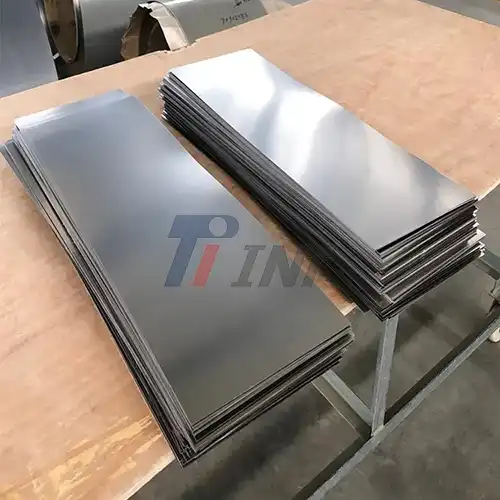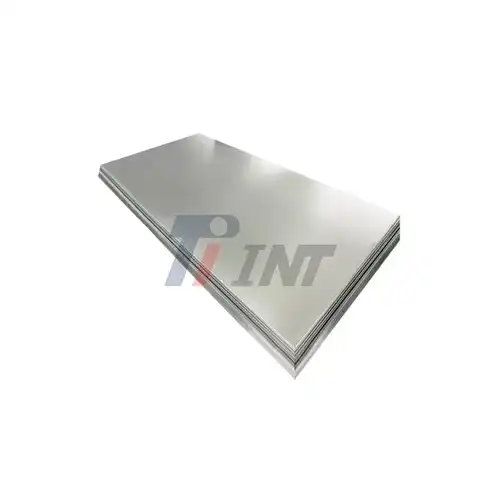Tips for Caring for Yourself After Brain Surgery with Titanium Plates
 2025-06-26 14:08:08
2025-06-26 14:08:08
Recovering from brain surgery involving titanium plate implants requires careful attention and adherence to post-operative care instructions. Titanium plate brain surgery, a procedure utilizing advanced medical titanium technology, demands specific aftercare practices to ensure optimal healing and minimize complications. This comprehensive guide offers valuable tips for self-care following your procedure, focusing on wound management, activity limitations, and monitoring for potential issues. By following these recommendations and maintaining open communication with your healthcare team, you can support your recovery process and adjust to life with your new titanium implant.
|
|
|
Understanding Your Titanium Plate Implant
Before delving into post-operative care, it's crucial to understand the nature of your titanium plate implant. Titanium plates used in brain surgery are meticulously engineered medical devices designed to provide stability and support to the skull or brain tissue. These plates offer numerous advantages that contribute to successful surgical outcomes and patient recovery:
Biocompatibility and Safety
One of the primary reasons titanium is chosen for brain surgery implants is its exceptional biocompatibility. This characteristic ensures that the implant integrates well with your body's tissues, minimizing the risk of adverse reactions or rejection. The safety profile of titanium plate brain surgery is further enhanced by their ability to remain inert within the body, reducing the likelihood of inflammation or allergic responses.
Durability and Longevity
Titanium plates used in brain surgery are engineered to be both lightweight and extremely durable. This unique combination allows for long-term stability without adding unnecessary burden to the surgical site. The material's corrosion-resistant properties contribute to its longevity, ensuring that the implant maintains its structural integrity over time, even in the challenging physiological environment of the human body.
Customization and Precision
Advanced manufacturing processes allow for the customization of titanium plates to suit individual patient needs. This level of precision engineering ensures a perfect fit, which is crucial for both the success of the surgery and the comfort of the patient during recovery. The ability to tailor these implants to specific surgical requirements demonstrates the versatility of titanium in addressing various neurosurgical challenges.
Immediate Post-Operative Care
The days and weeks following your titanium plate brain surgery are critical for setting the foundation for a successful recovery. Proper care during this period can significantly influence your healing process and long-term outcomes.
Wound Care and Hygiene
Maintaining proper hygiene around the surgical site is paramount to prevent infection and promote healing. Your healthcare provider will give you specific instructions on how to clean and care for your incision. Generally, this may involve gently cleaning the area with mild soap and water, patting it dry, and applying any prescribed ointments or dressings. It's crucial to keep the area dry and avoid submerging it in water until your doctor advises it's safe to do so.
Pain Management
Managing pain effectively is essential for your comfort and recovery. Your doctor will likely prescribe pain medication to help you through the initial recovery period. It's important to take these medications as directed and communicate with your healthcare team if you experience unmanaged pain or side effects from the medication. Remember, effective pain management can facilitate better rest and mobility, which are crucial for healing.
Activity Restrictions
In the immediate post-operative period, your activities will be significantly restricted to protect the surgical site and allow for proper healing. This typically includes avoiding strenuous activities, heavy lifting, and sudden movements of the head and neck. Your doctor will provide specific guidelines on when you can gradually increase your activity level. Adhering to these restrictions is crucial for preventing complications and ensuring the stability of your titanium plate implant.
Long-Term Care and Considerations
As you progress in your recovery, the focus shifts to long-term care and adapting to life with your titanium plate implant. This phase involves ongoing vigilance and adopting lifestyle changes to support your overall health and the longevity of your implant.
Regular Follow-up Appointments
Maintaining a schedule of regular follow-up appointments with your neurosurgeon is crucial for monitoring your recovery and the performance of your titanium plate implant. These visits allow your healthcare team to assess healing, address any concerns, and make necessary adjustments to your care plan. Don't hesitate to discuss any symptoms or questions you may have during these appointments.
Lifestyle Adaptations
While titanium plates are designed for durability and longevity, certain lifestyle adaptations may be necessary to protect your implant and overall health. This might include avoiding high-impact activities or sports that could potentially damage the implant site. Your healthcare provider can offer guidance on safe activities and any necessary precautions specific to your situation.
Nutrition and Hydration
Proper nutrition plays a vital role in your recovery and long-term health following titanium plate brain surgery. A balanced diet rich in proteins, vitamins, and minerals can support tissue healing and overall well-being. Staying well-hydrated is equally important, as it aids in various bodily functions and can help prevent complications. Consult with a nutritionist or your healthcare provider for personalized dietary recommendations.
Mental Health and Support
Recovery from brain surgery is not just a physical process but also an emotional and psychological journey. It's normal to experience a range of emotions, including anxiety, depression, or frustration during your recovery. Seeking support through counseling, support groups, or talking with loved ones can be immensely beneficial. Don't hesitate to discuss any mental health concerns with your healthcare provider, as they can provide resources and referrals if needed.
Monitoring for Complications
While complications are rare with modern titanium plate implants, it's important to remain vigilant and aware of potential issues. Be alert for signs of infection, such as increased pain, redness, swelling, or fever. Additionally, watch for any changes in neurological function, such as new or worsening headaches, vision changes, or difficulty with speech or movement. Promptly report any concerning symptoms to your healthcare provider.
Conclusion
Recovering from titanium plate brain surgery requires a comprehensive approach to self-care, combining diligent wound care, adherence to activity restrictions, and long-term lifestyle adaptations. The advanced properties of titanium implants, including their excellent biocompatibility, durability, and customizability, contribute significantly to positive surgical outcomes. However, your active participation in the recovery process is equally important. By following these tips and maintaining open communication with your healthcare team, you can support your healing journey and optimize your long-term well-being.
For more information about medical titanium products and their applications in neurosurgery, please contact us at export@tiint.com. Our team at Baoji INT Medical Titanium Co., Ltd. is committed to advancing medical technology through high-quality titanium solutions, ensuring that patients like you receive the best possible care and outcomes.
References
1. Winn, H. R. (2011). Youmans Neurological Surgery. Elsevier Health Sciences.
2. Greenberg, M. S. (2016). Handbook of Neurosurgery. Thieme.
3. Titanium in Medical Applications. (2019). Titanium Processing Center.
4. Ratner, B. D., Hoffman, A. S., Schoen, F. J., & Lemons, J. E. (2013). Biomaterials Science: An Introduction to Materials in Medicine. Academic Press.
5. American Association of Neurological Surgeons. (2021). Post-Operative Care.












_1752821449466.webp)
_1750210463958.webp)
_1755061801114.png)




